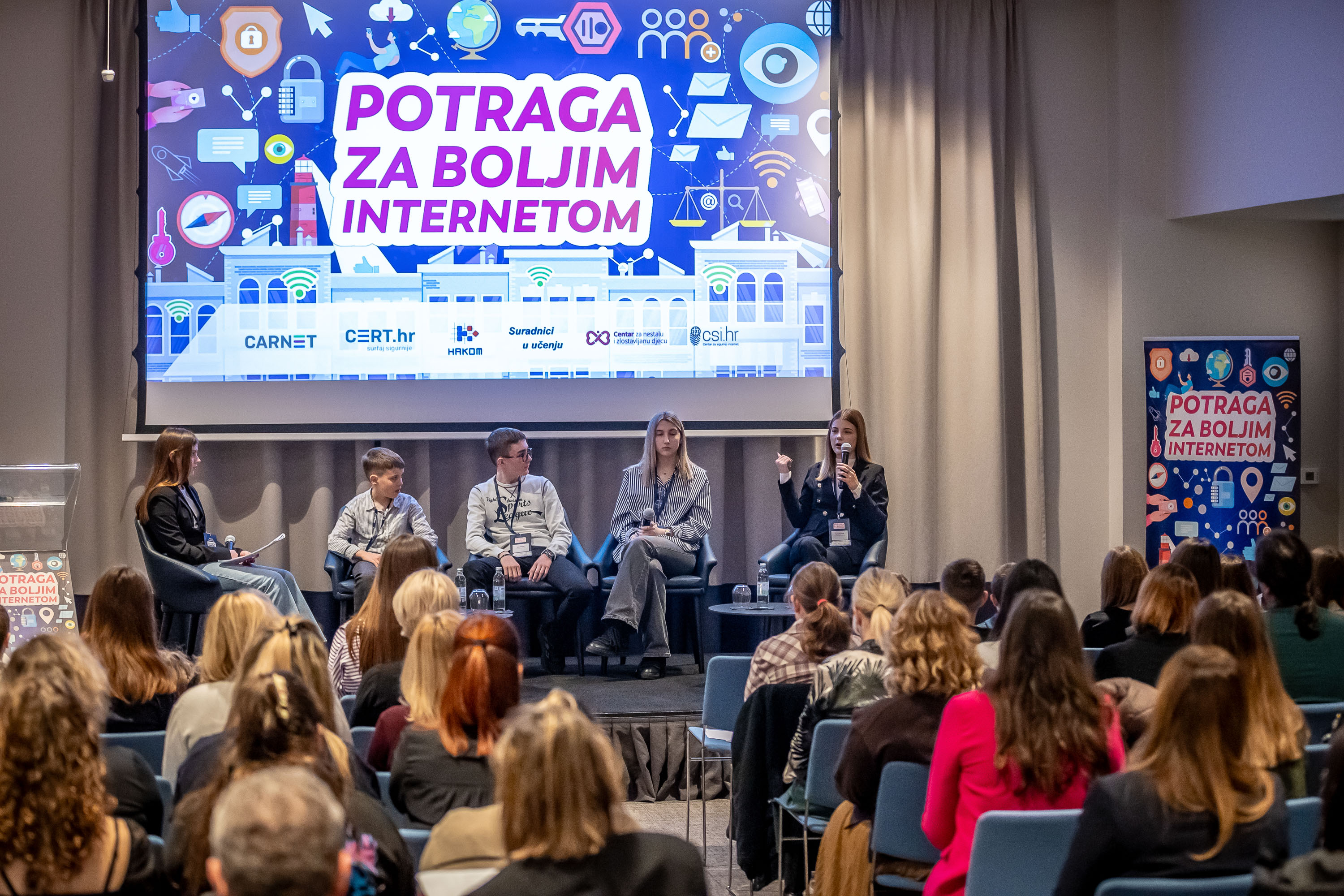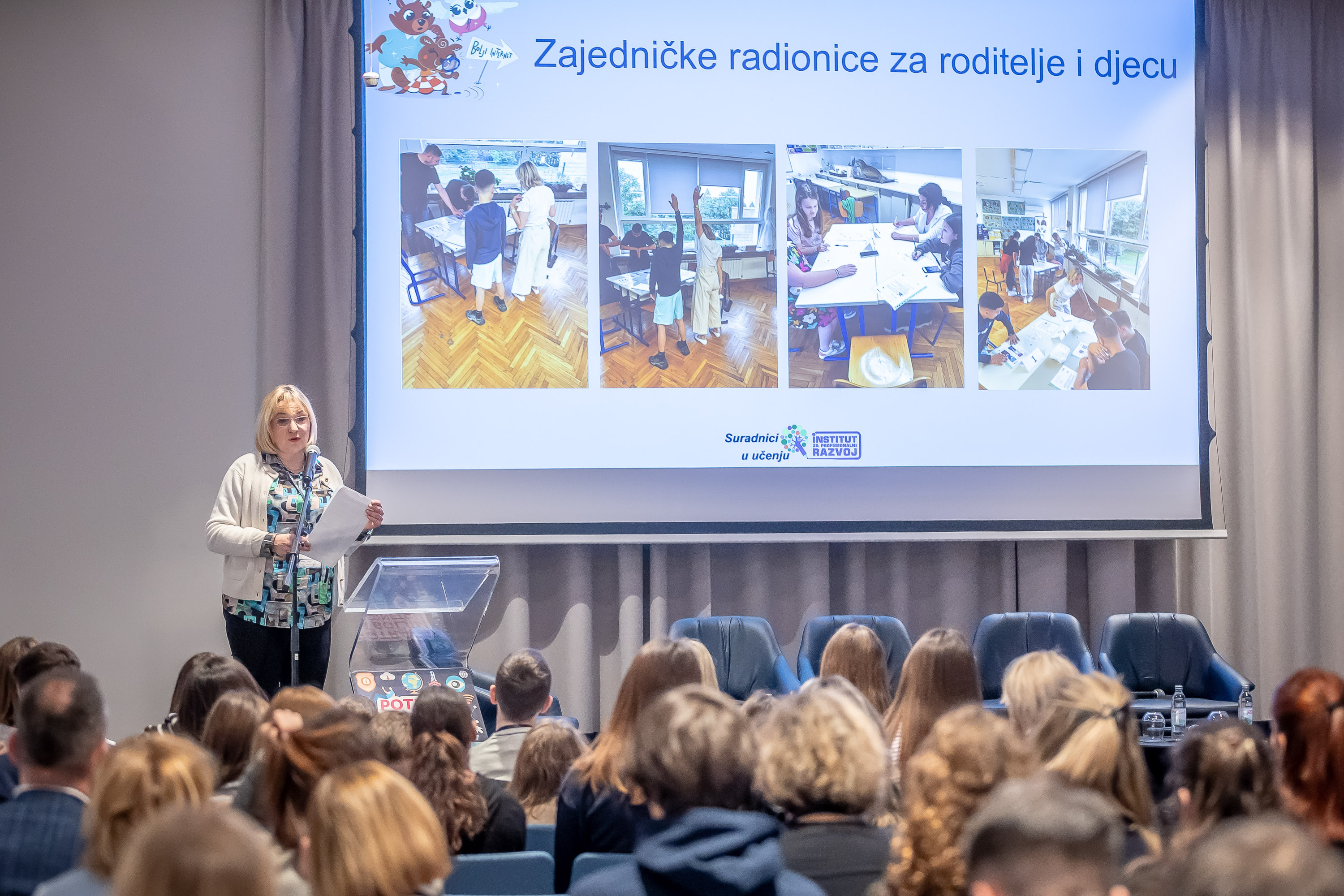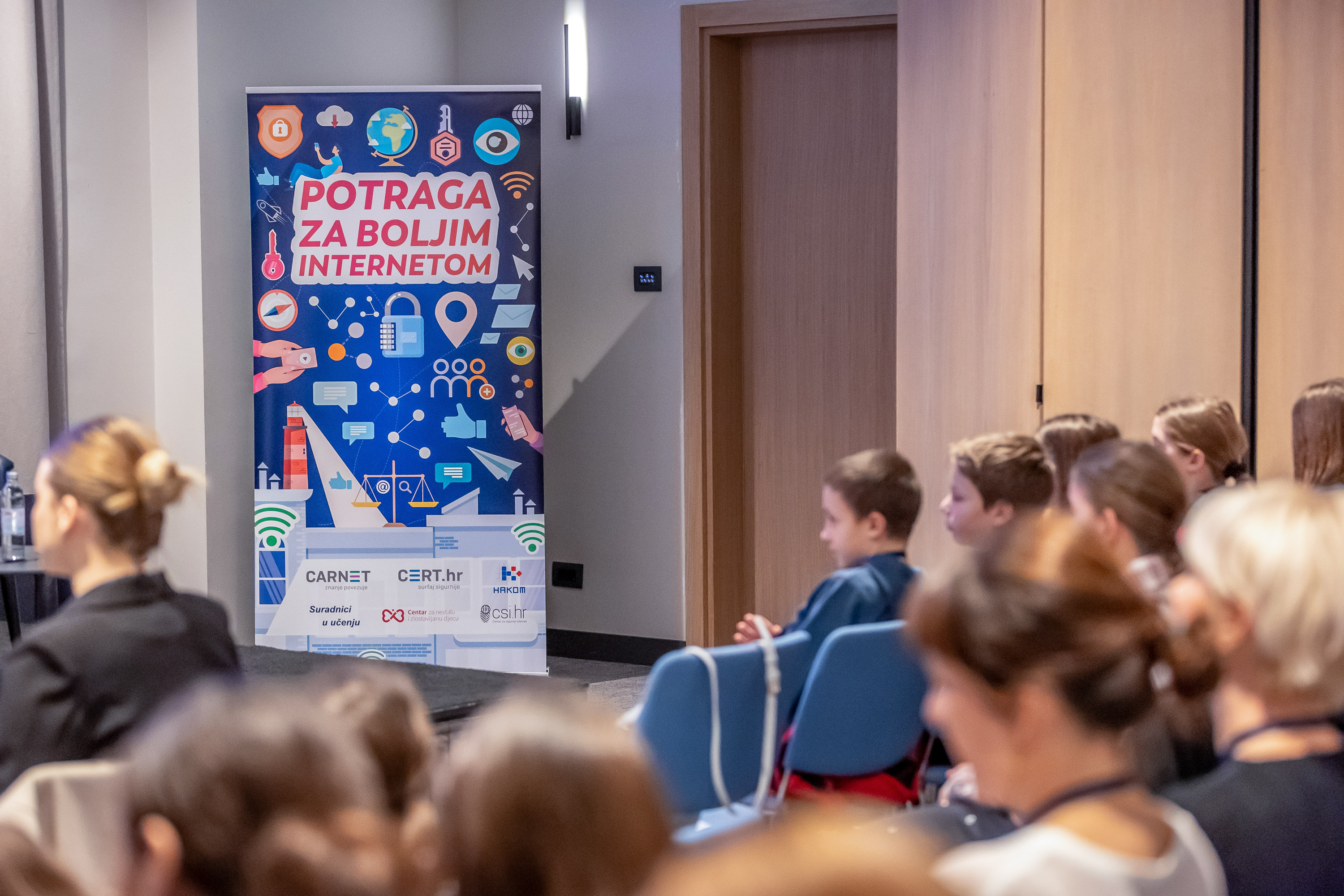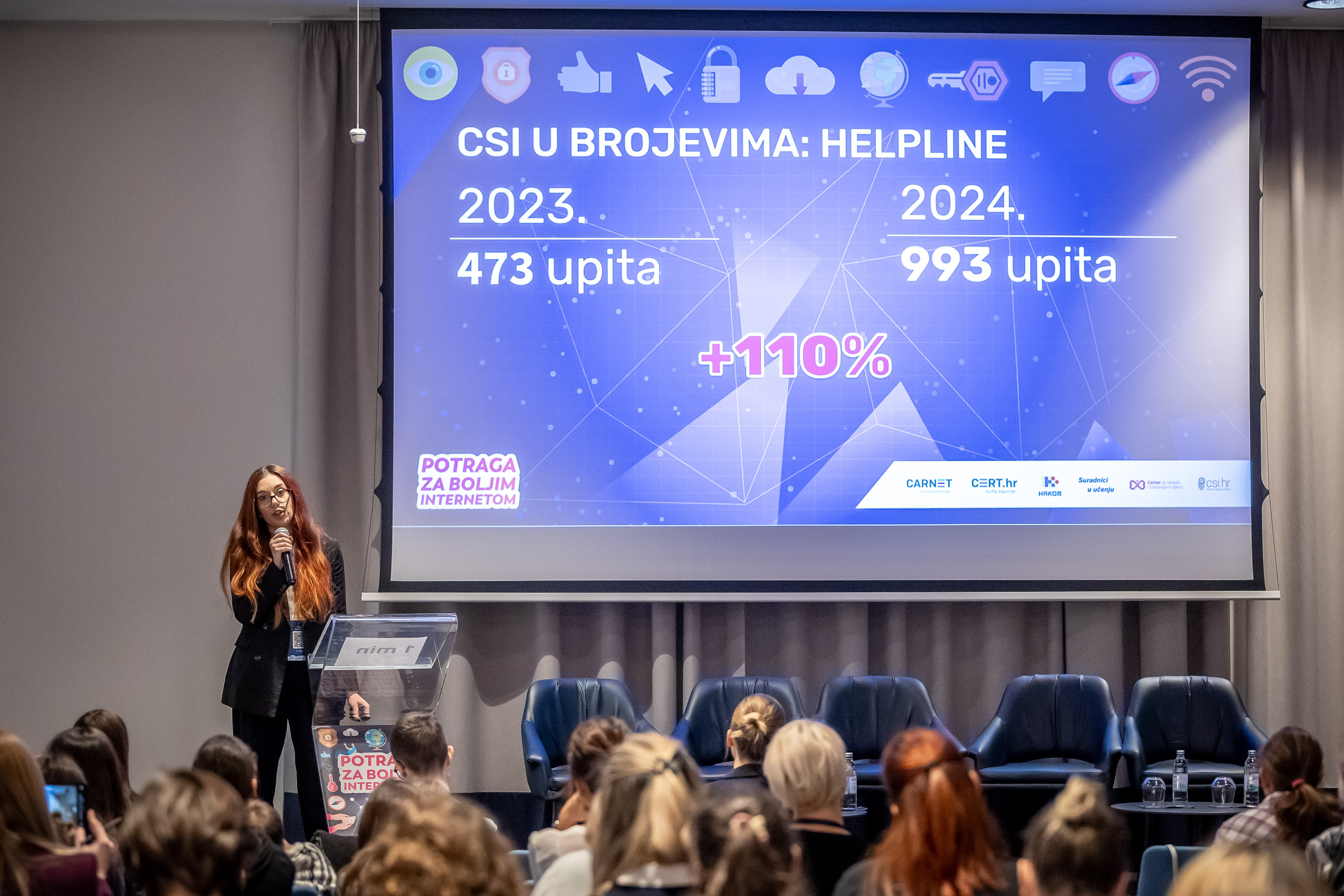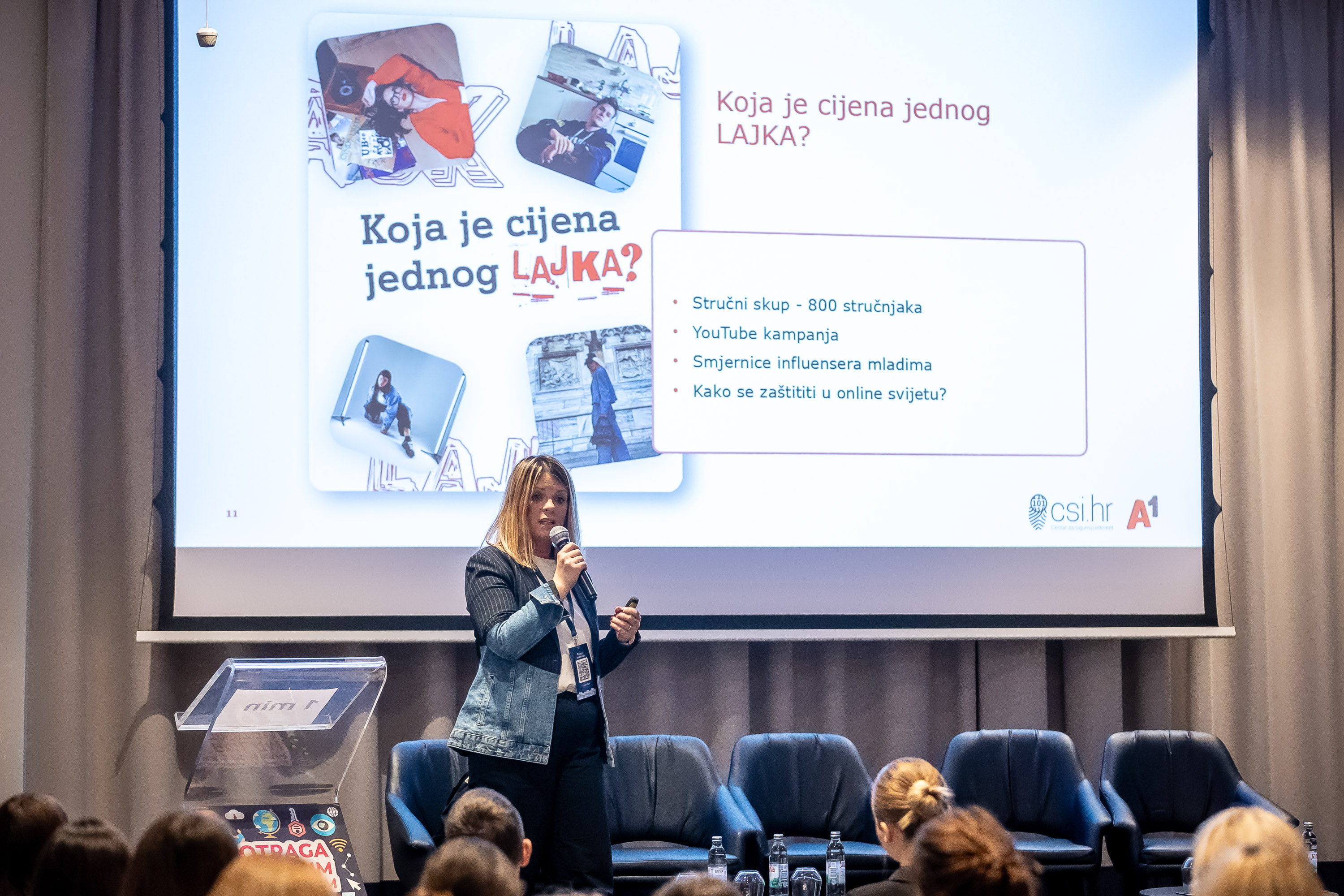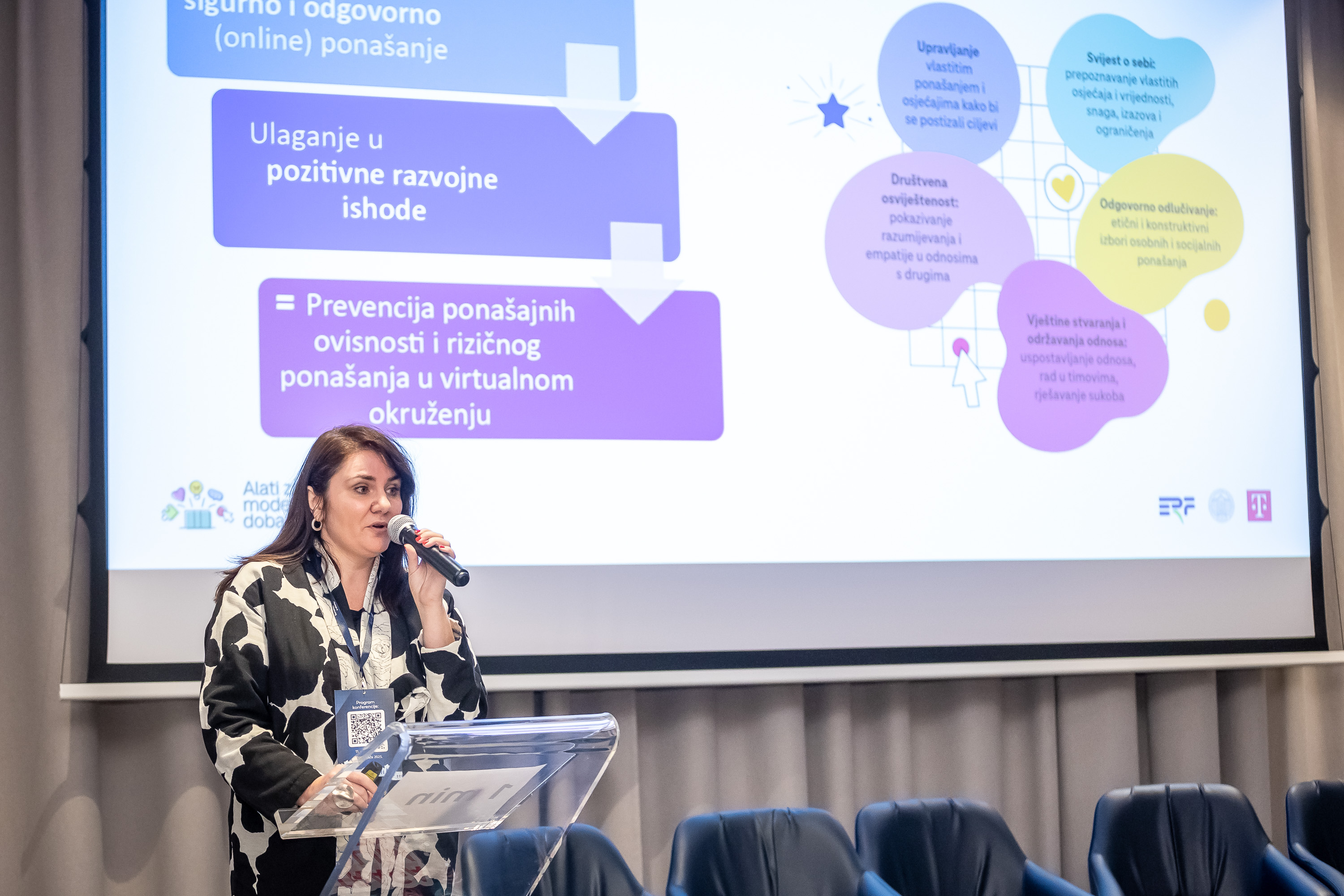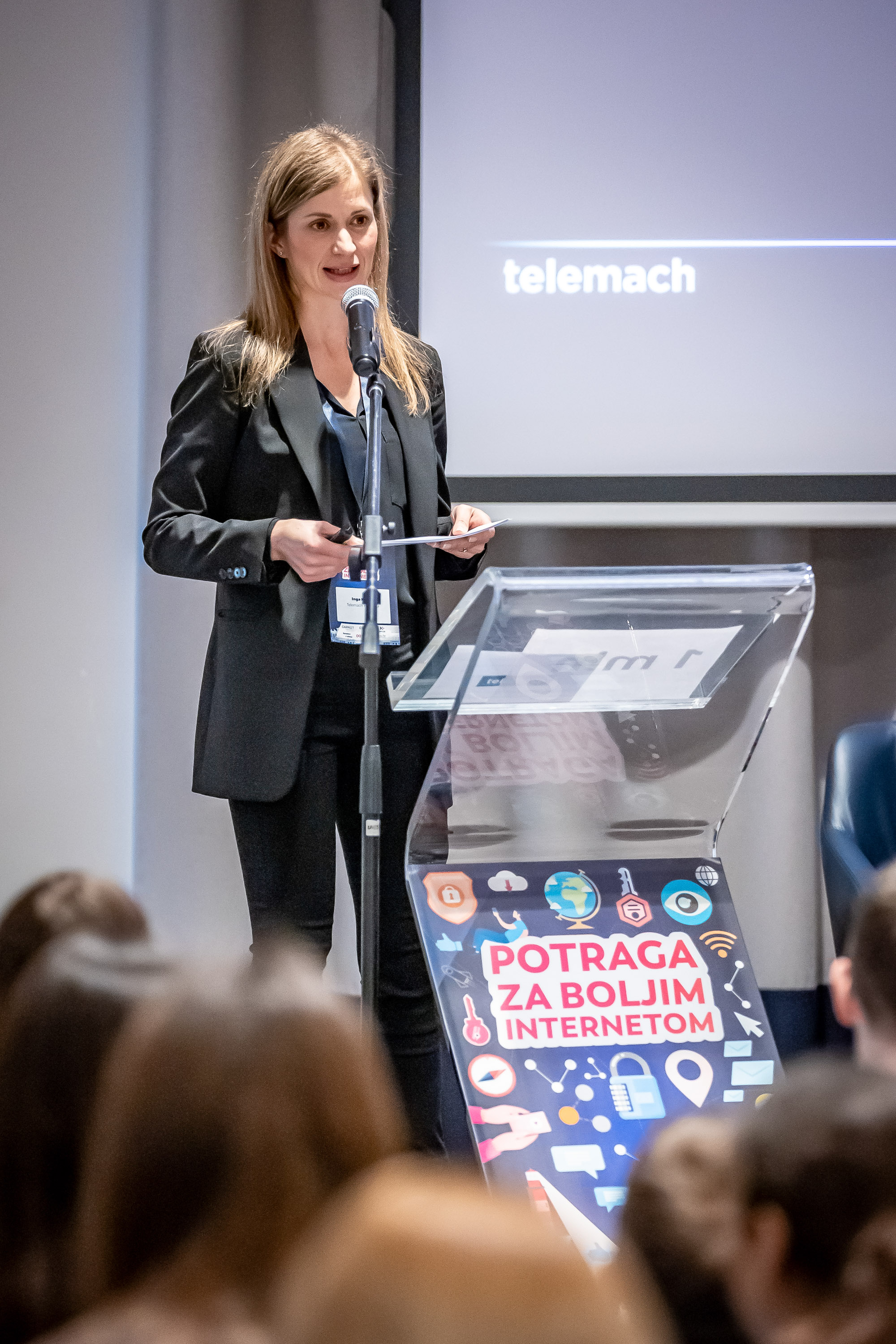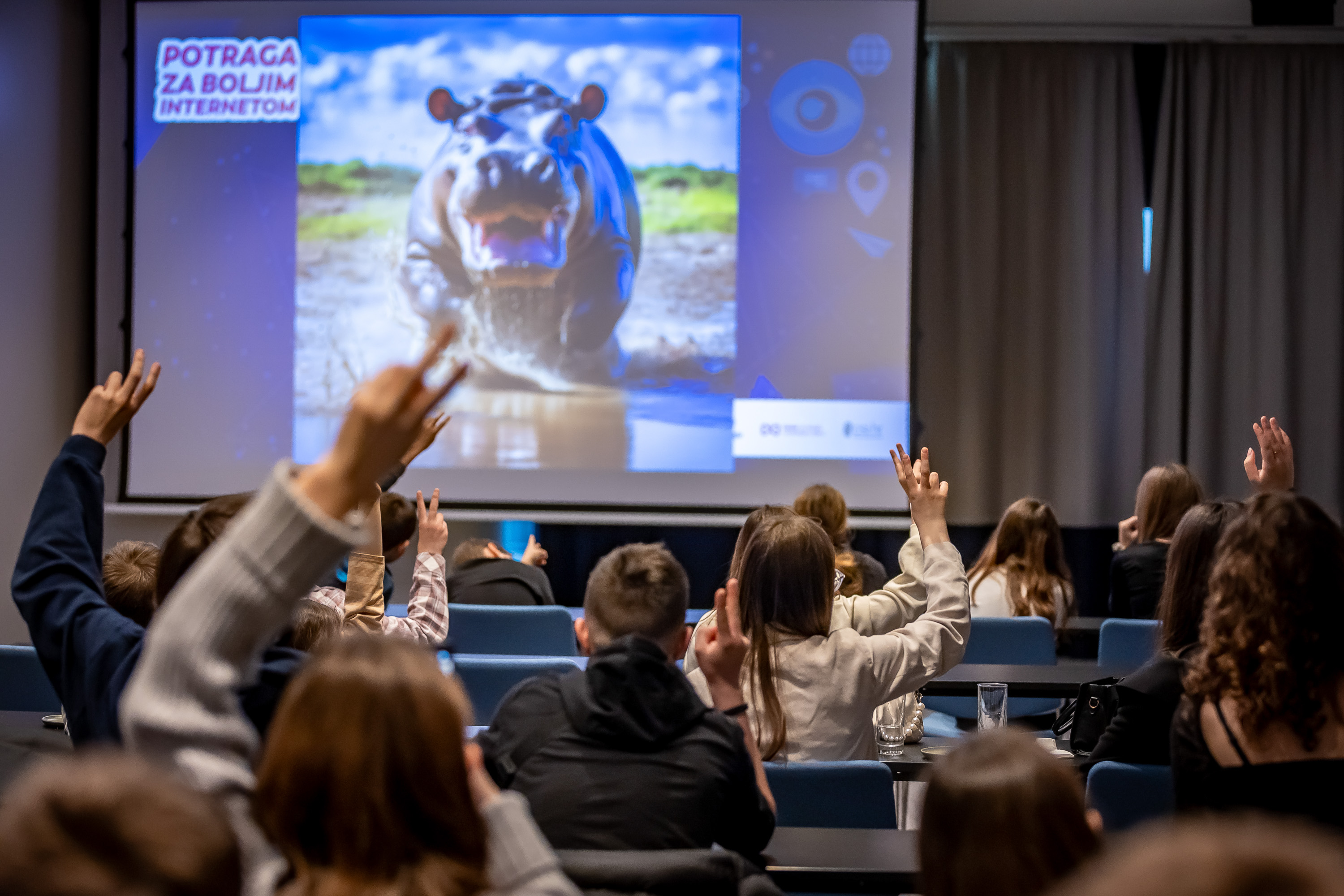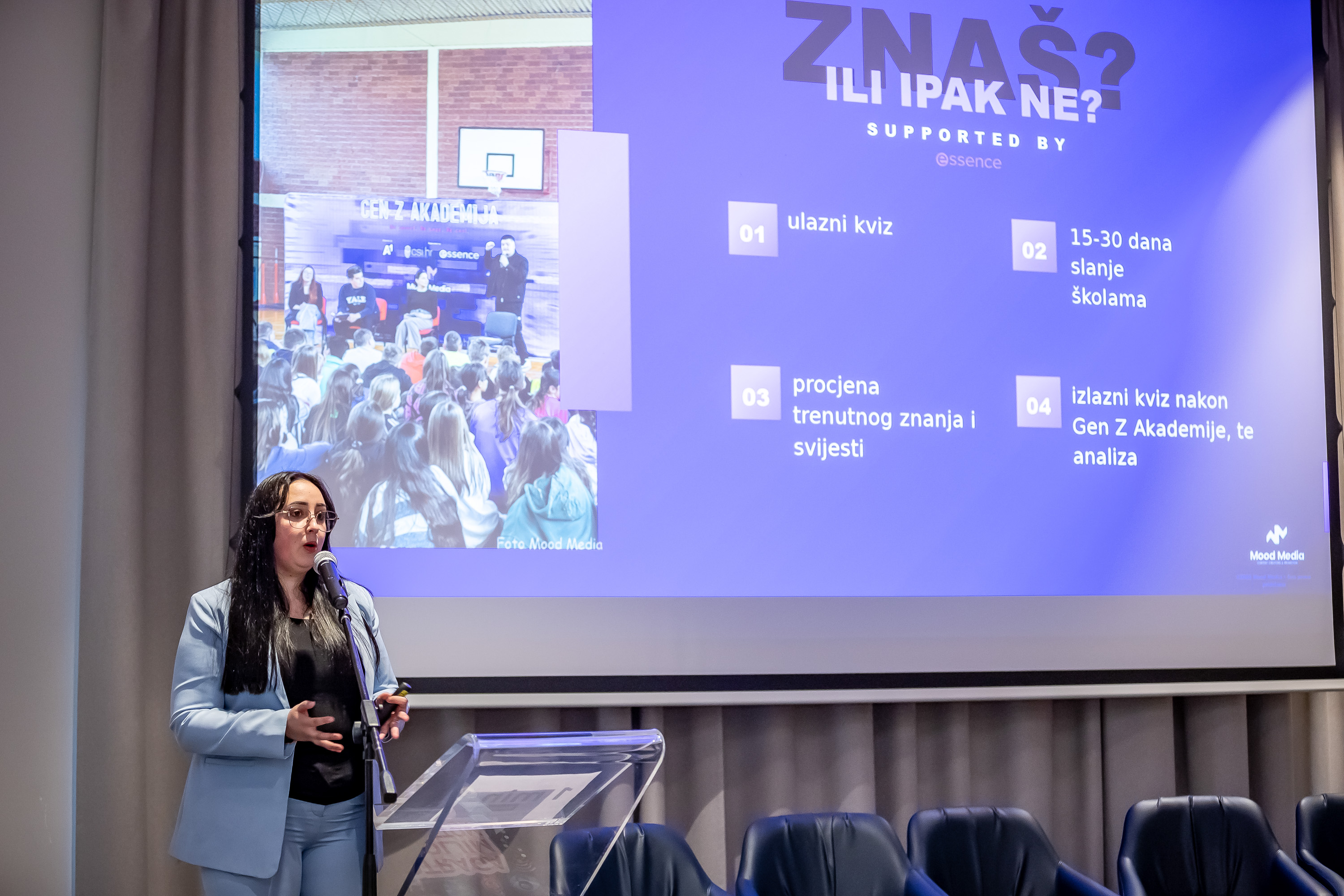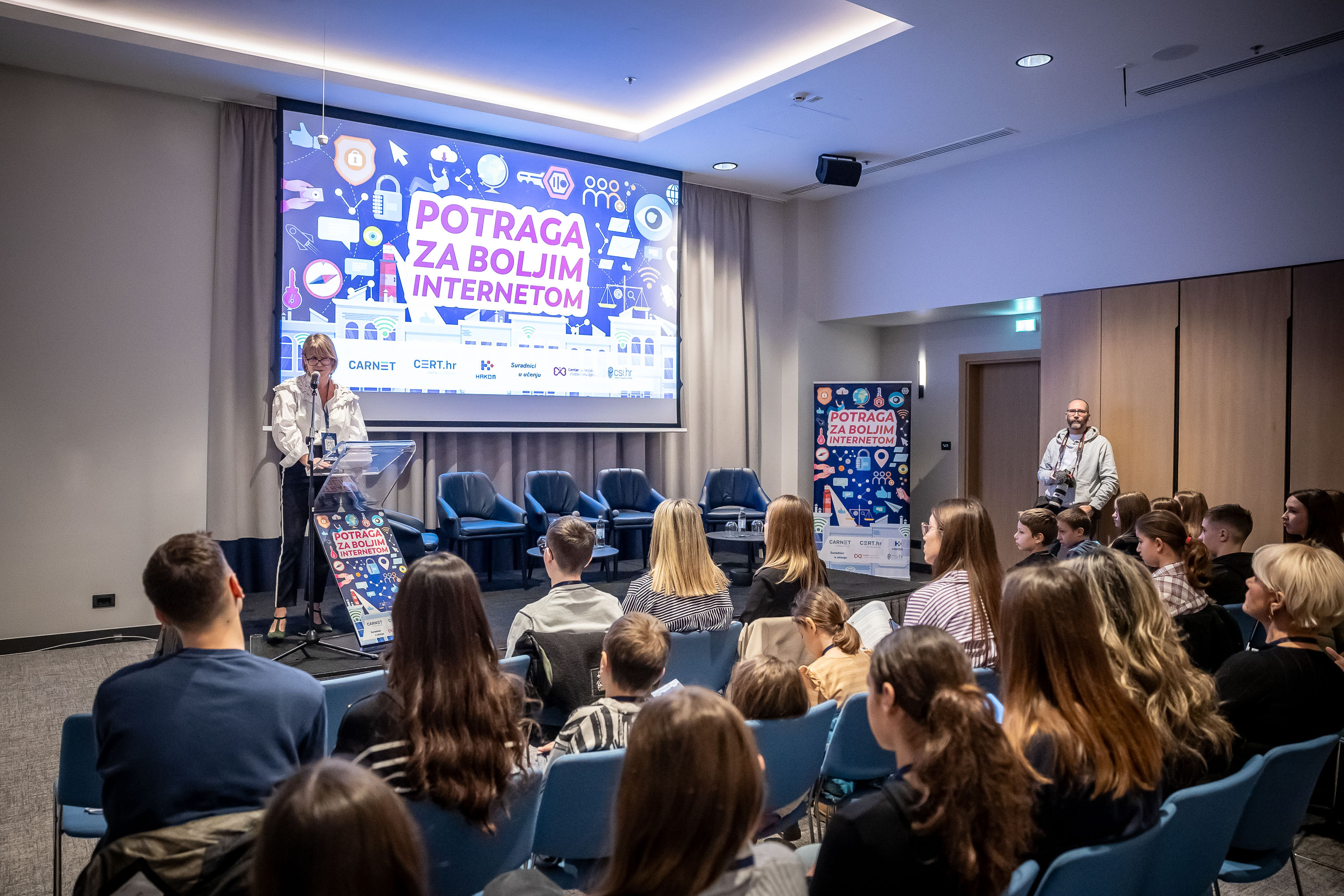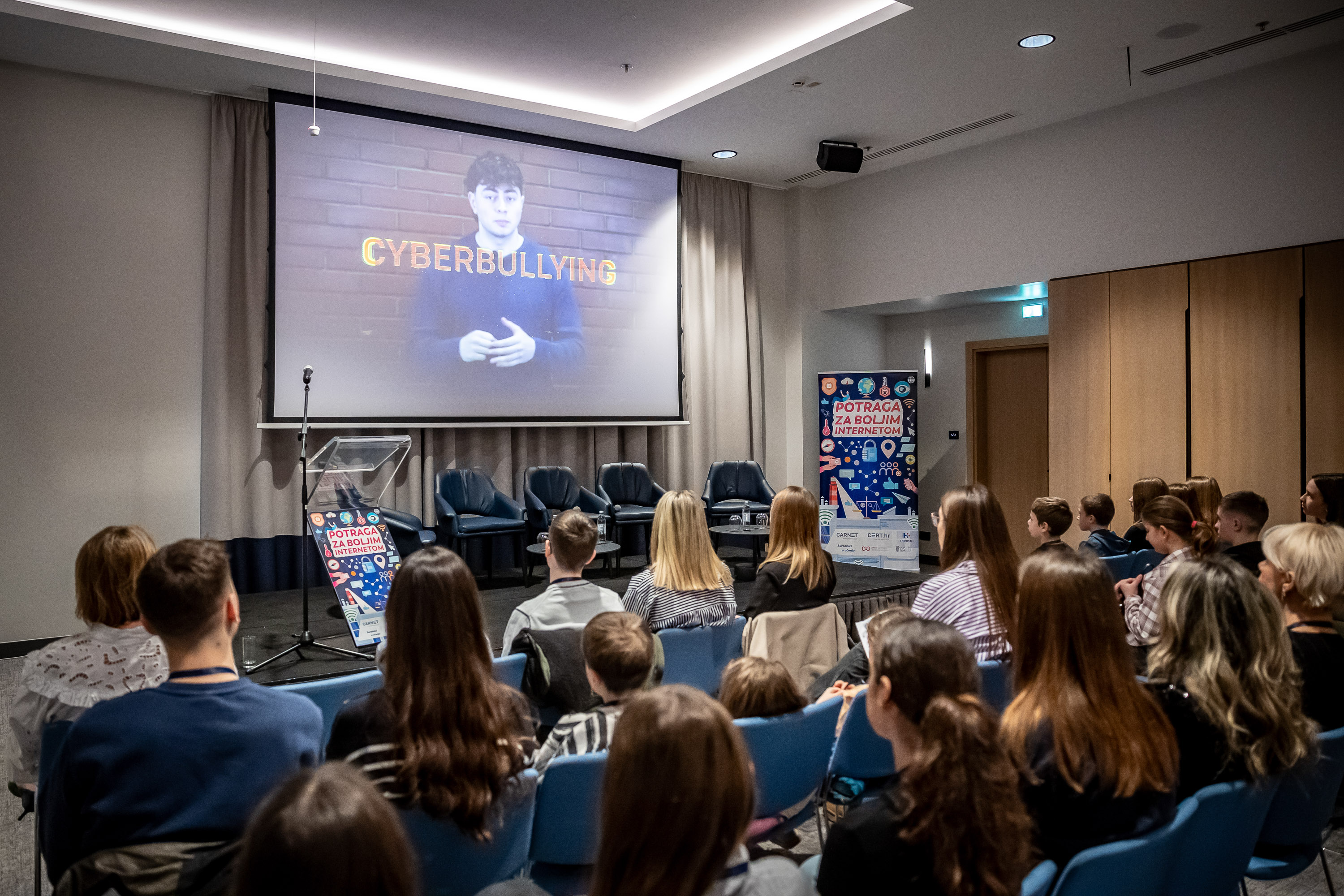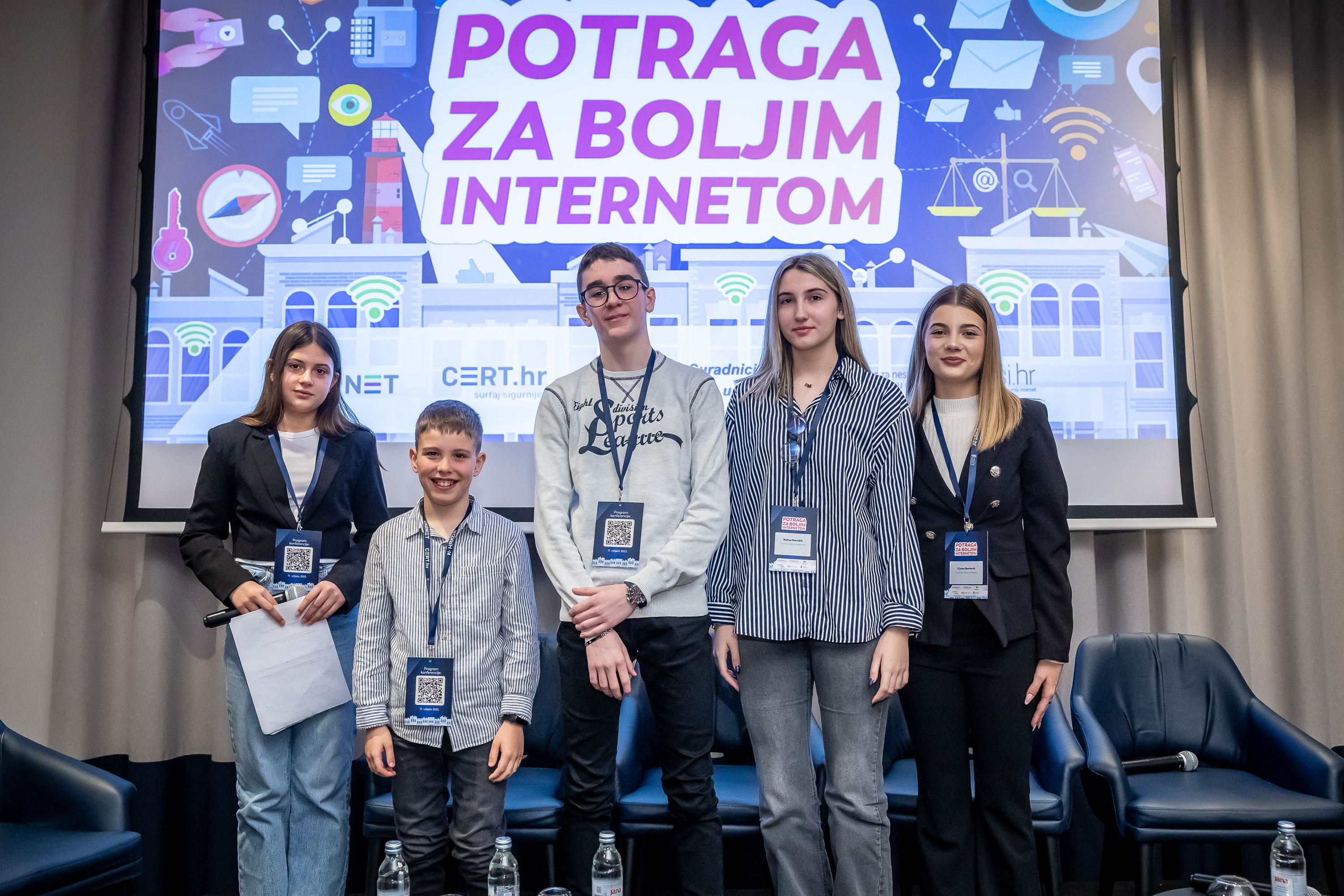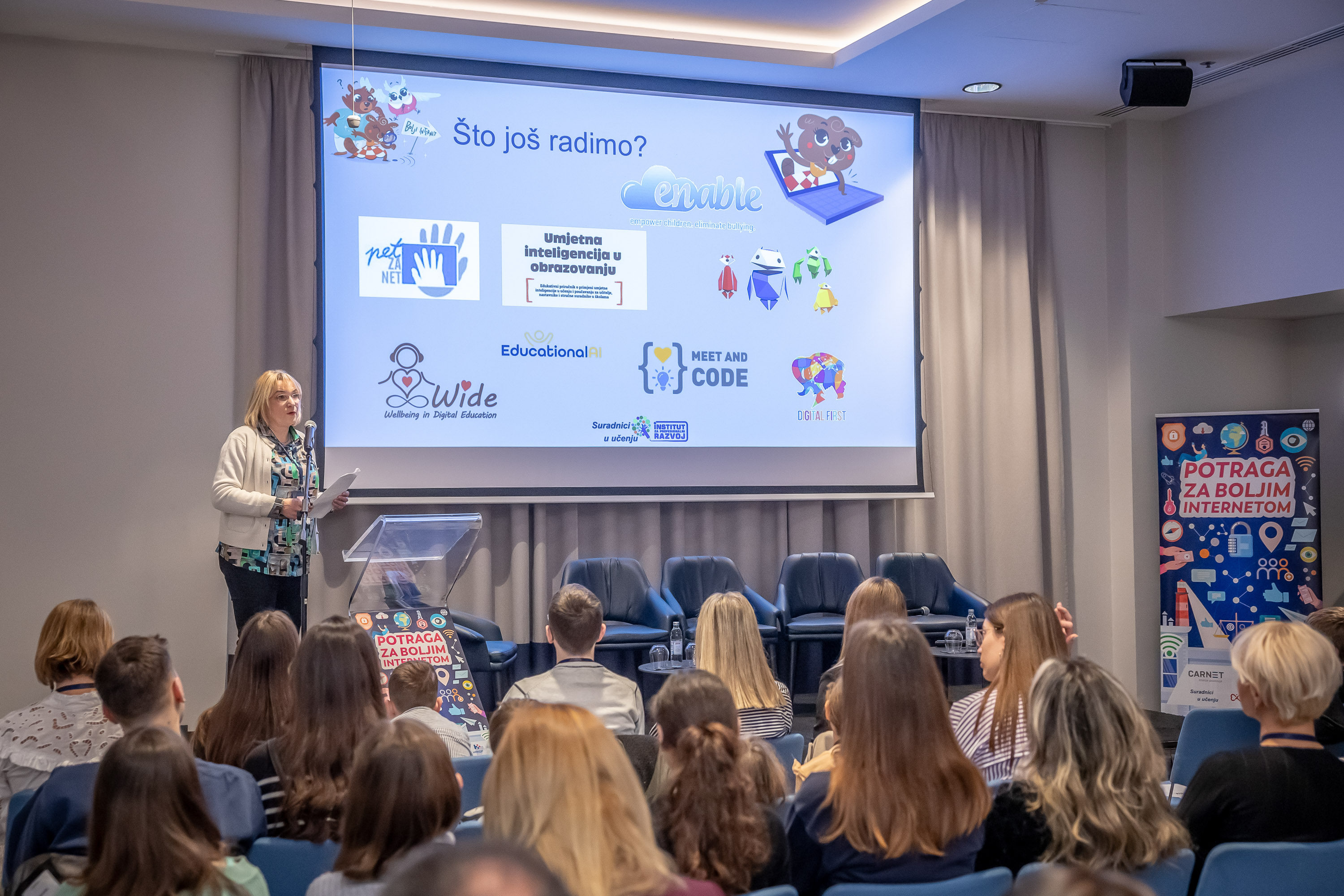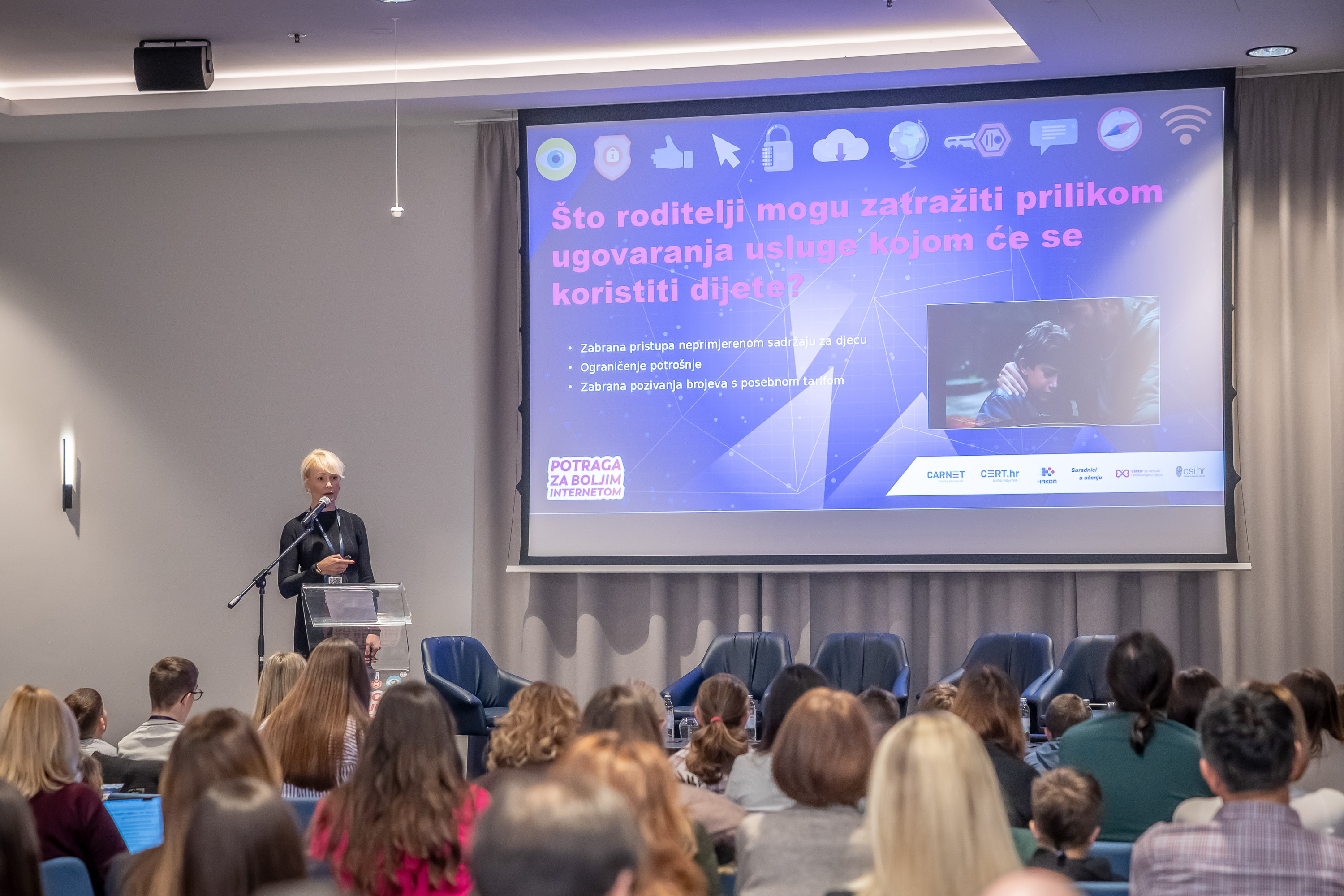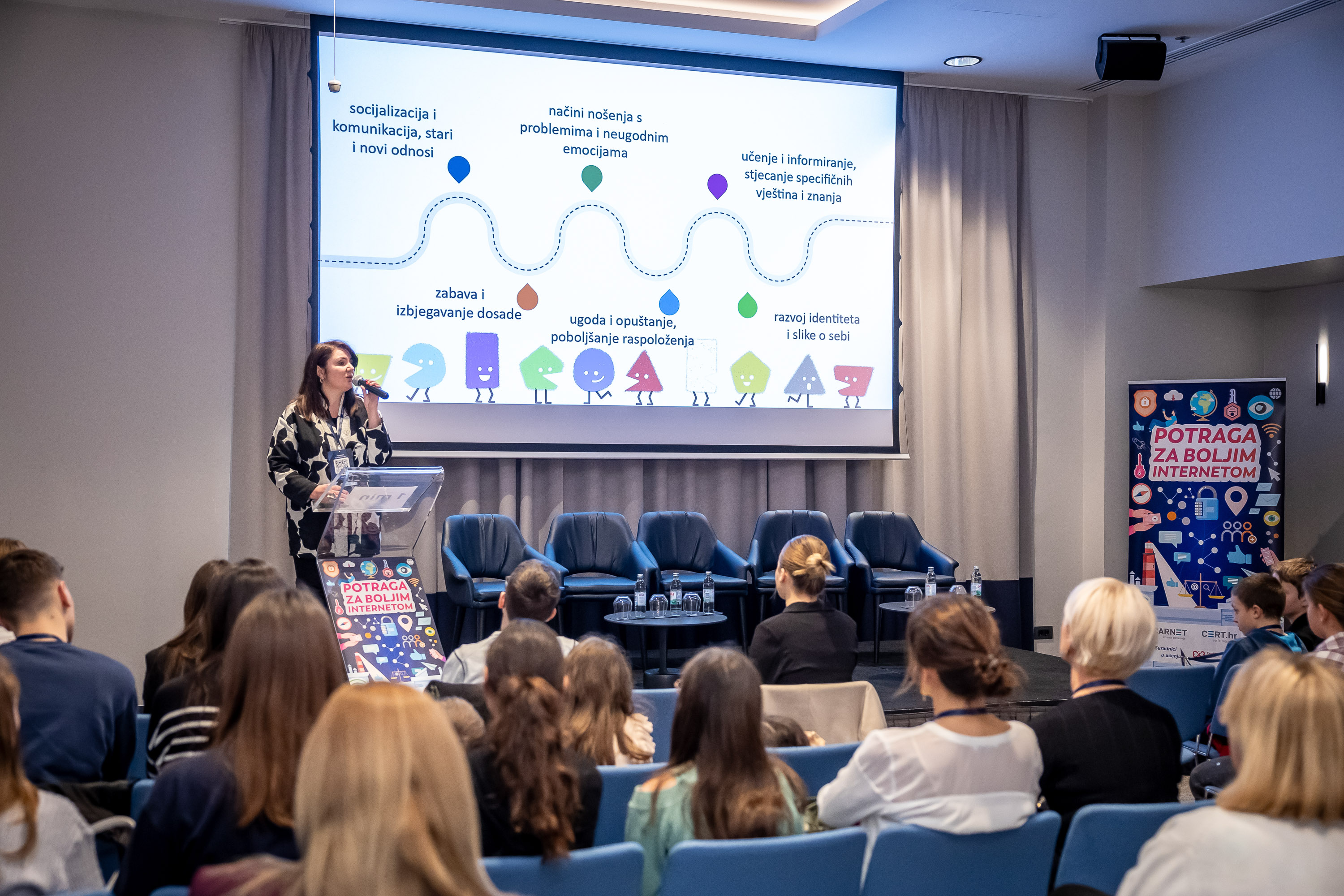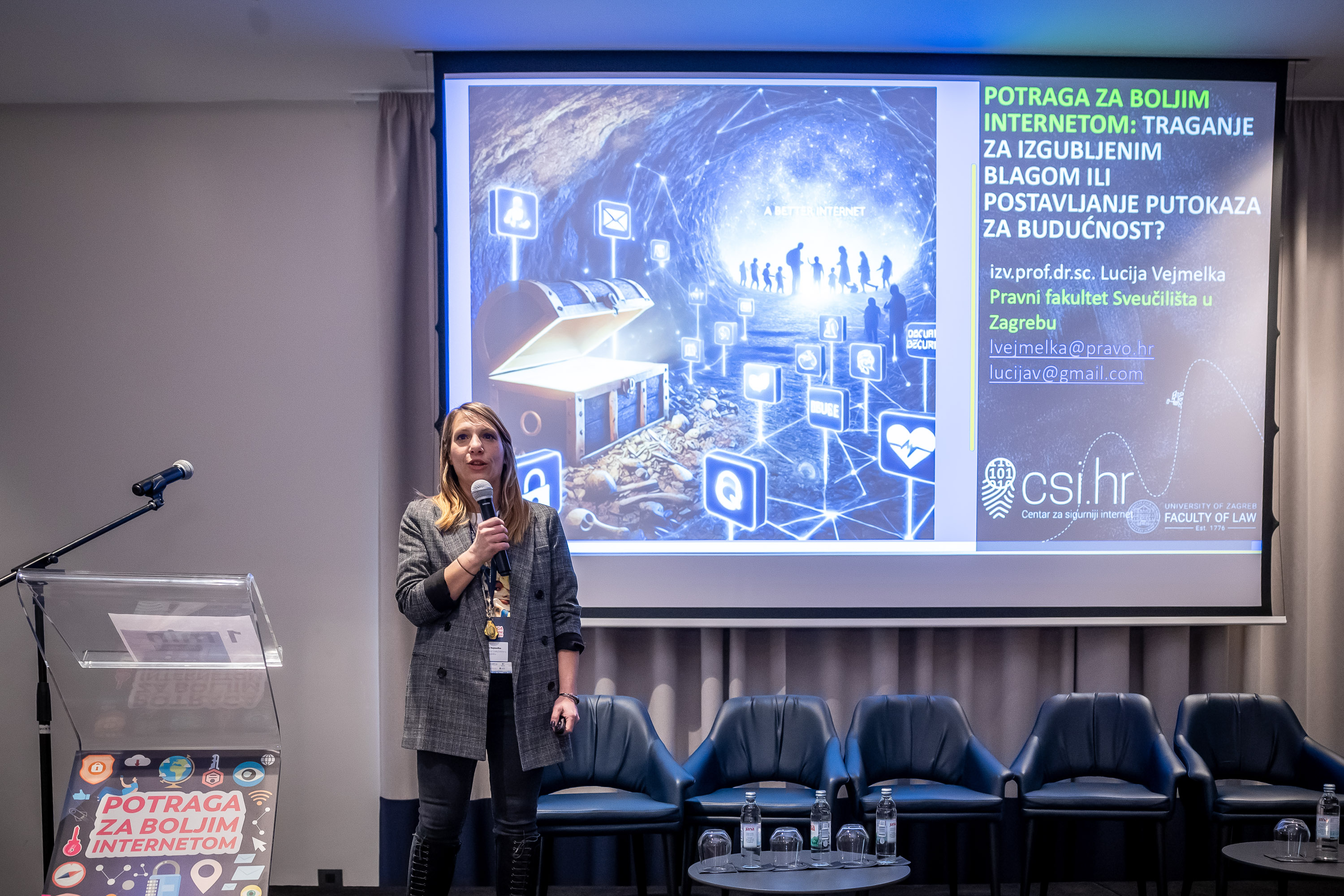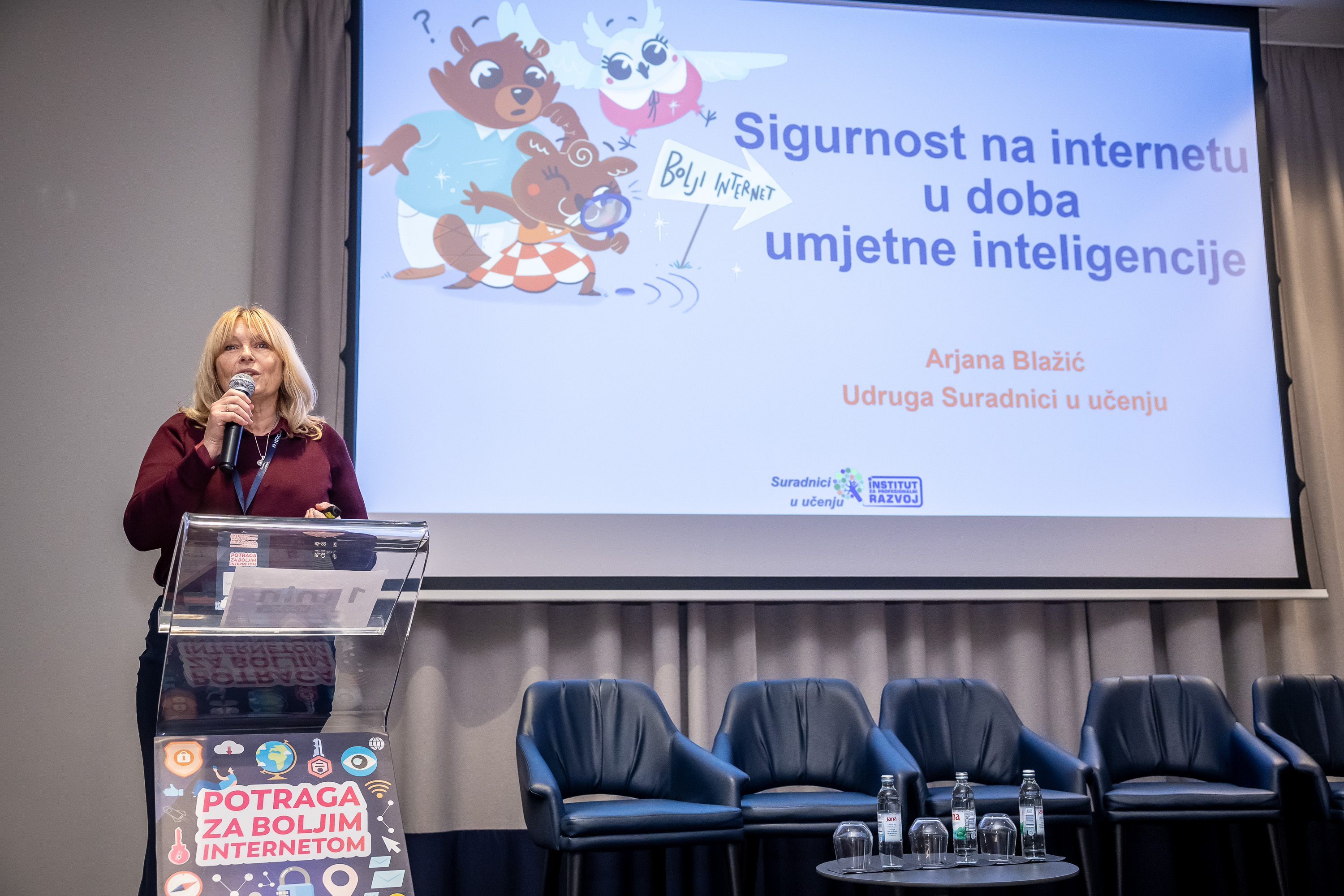Conference “Search for a Better Internet 2025” Brings Together Experts and Children
ZAGREB, 11 February 2025 - The conference “Search for a Better Internet 2025” brought together over 150 experts, teachers, educators, and primary and secondary school pupils, to mark Safer Internet Day. Hosted by the Association "Collaborators in Learning", the Safer Internet Centre, HAKOM, and CARNET’s National CERT, the event highlighted the importance of education and raising awareness among children, particularly parents and guardians, about online dangers.
This year’s conference placed special emphasis on a roundtable discussion with primary and secondary school pupils, focusing on the benefits the internet’s risks. Pupils agreed on one key point - although the internet offers numerous opportunities for learning and entertainment, it is crucial to know how to use it safely.
The pupils pointed out threats such as identity theft, cyberbullying, catfishing (when people pretend to be someone else online to deceive others), and the spread of false information. They particularly stressed the importance of critical thinking and verifying sources, as they noted that not everything we read online can be trusted.
Discussion on How the Internet Reflects Our Personality and Behaviour. The discussion also touched on how the internet reflects our personality and behaviour, emphasising the importance of treating others online as we would like to be treated ourselves. Pupils agreed that sharing positive comments and offering support can contribute to creating a safer and more pleasant online space.
They also highlighted how they can influence the content they engage with on social media. By choosing high-quality and positive posts, they can shape social media algorithms and reduce the presence of negative content in their feeds.
Finally, everyone agreed that adults, especially parents, play a crucial role in educating children about online safety. They should lead by example, actively monitor their children’s online activities, provide support, and maintain open communication. Internet safety is not just the responsibility of children, but also the adults, who must work together to create a safer online environment for all.
"Our shared goal is to ensure a safe and high-quality online environment for children. To achieve this, we must work together and build on each other’s efforts. That is why it is encouraging to see teachers, parents, associations, educational institutions, and HAKOM as the regulator of the electronic communications market collaborating in Croatia," said Miran Gosta, Director of HAKOM. He added that HAKOM serves as Croatia’s coordinator for digital services and the implementation of the Digital Services Act, working with social media platforms to remove illegal content when necessary.
Nataša Glavor, Deputy CEO for National CERT, CARNET highlighted that young people are one of the most vulnerable groups on the internet due to their playfulness and lack of preparedness for the threats that technology can bring. “Play can easily turn into cyberbullying, while exposure to age-inappropriate content can cause numerous issues for children. It is crucial to stay informed about current cyber threats so they can be recognised in time and prevented, ensuring we do not become victims,” concluded Glavor.
Darko Rakić, President of the Association "Collaborators in Learning," drew attention to misinformation as one of the main dangers on the internet. “Children today spend too much time on social media and the internet, absorbing vast amounts of information without verifying it. We need to teach them critical thinking, not only to assess the truthfulness of information but also to understand new technologies such as artificial intelligence, deepfakes, and similar development.
“The most dangerous aspect of the internet is the sexual abuse of children through new technologies. Increasingly hazardous are also the challenges on various social media platforms, which can endanger both the health and lives of children,” emphasised Tomislav Ramljak, Head of the Safer Internet Centre, highlighting that “Safer Internet Day is important because, regardless of technology, the relationship of trust between children and parents is key to protecting children online.”
“Let us listen to children, build strong relationships with them, and explore the digital world together, growing alongside them - with their knowledge of new technologies and our experience and wisdom in ensuring their safety,” concluded Helenca Pirnat Dragičević, Ombudsperson for children.
The conference addressed the importance of a safe internet, with a focus on protecting users of electronic communication services and promoting responsible behaviour in the digital space. Discussions covered the challenges of digital education, the recognition of fake news, and online privacy protection, along with guidelines for teaching children responsible internet use.
Different forms of peer cyberbullying, its consequences, and the legal frameworks governing this issue were examined, alongside proposals for preventive and intervention measures for parents and teachers. Current trends in cybercrime, including online abuse, fraud, and identity theft, were also analysed, as well as preventive measures to safeguard children and young people.
Experts and children discussed ways to create a safer and more inclusive digital environment and how society can adapt to rapid technological changes to make the internet a secure space for communication and education. An overview of key activities and initiatives aimed at protecting children from digital threats was presented, along with methods for recognising and addressing risky situations online. It was also emphasised that teachers must keep pace with technological advancements to equip children with the knowledge needed to navigate and use the internet more safely.
For additional information please contact:
Croatian Regulatory Authority for Network Industries (HAKOM)
- Roberta Frangeša-Mihanovića 9 Street
- 10110 Zagreb, Croatia
- Tel. + 385 (0) 1 700 70 07
- Fax + 385 (0)1 700 70 70
Media inquiries can be submitted online using HAKOM’s official website: www.hakom.hr
About Hakom
HAKOM - Croatian Regulatory Authority for Network Industries – ensures preconditions for a fair market competition, stable growth and environment for innovations in the electronic communications and postal services market. HAKOM protects users’ interests and the possibility of choice among various communications and postal services at affordable prices, defines sustainable competitive conditions for operators and service providers under fair conditions for return on investment, and provides support to economic growth, public services and the quality of life in the Republic of Croatia by using modern technologies. HAKOM’ strategic goals are: to promote regulation of the electronic communications and postal services market, to support growth of investments and innovations in the electronic communications and postal services market, to provide efficient use of limited resources, to accelerate the growth of broadband products and services, to provide affordable offers of communications and postal services, to provide protection and informing of users, to build an efficient and comprehensive information system, to define and implement efficient processes, and to acquire multi-disciplinary expertise in market regulation.

